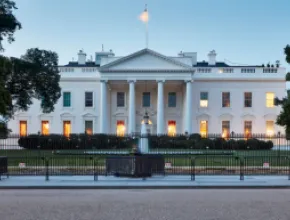Global business travel spend topped $1.2 trillion USD in 2015, growing 5 percent over 2014, and is forecast to reach 1.3 trillion in 2016 according to the GBTA BTI Outlook – Annual Global Report & Forecast, a new report released by the GBTA Foundation, the education and research arm of GBTA.
Despite continued global uncertainty, cautious optimism rules the forecast, which predicts business travel spend to advance 5.8 percent on average over the next five years reaching $1.6 trillion in 2020.
“Global business travel remains a critical driver of the success of organizations around the globe,” said Michael W. McCormick, GBTA executive director and COO. “Business travel has demonstrated a tremendous resiliency as it continues slow and steady progress even in the face of global uncertainty, a weakened global economy, terrorist attacks, world health issues and other obstacles.”
At $291 billion, China surpassed the United States as the largest business travel market in 2015.
Sustained economic uncertainty and mixed results among the major business travel markets will drive continued moderate growth, but as GBTA looks ahead towards 2020, the organization expects there will be a drastic difference in the relative performance of business travel markets around the globe.
Both India and Indonesia will average double-digit growth in business travel spending over the next five years. China’s economic growth continues to moderate and GBTA forecasts their business travel market will be the fifth fastest growing major market in the world over the next five years—a vast departure from their No. 1 average ranking over the last 15 years. Despite declines in growth, China remains the largest single market opportunity for travel suppliers and marketers as their $291 billion market size coupled with 8.4 percent average growth will lead to the largest gains in spending of any market.
The annual forecast was compiled before the U.K. voted for Brexit on June 23, but the added uncertainty the vote brings will likely make its mark felt on business travel. The financial upheaval and pending changes to trade and immigration rules will raise management heartburn causing some postponement, and even outright cancellation of business trips. It may also trigger travel budget constriction as management seeks to hedge the uncertainty. If the U.K. does enter a mild recession, domestic and outbound business travel will suffer, but a much weaker pound means that inbound leisure and business travel could be a bargain.
Business Travel Evolution: 15 Years of Volatility
With 15 years of business travel spend now tracked by the GBTA Foundation, it is clear that business travel has evolved rapidly in this time. In 2000, $634 billion was spent on global business travel, half of the $1.2 trillion spent in 2015. Growth has been driven by an increasingly connected world.
External forces also had a dramatic impact as business travel volumes were held back as many developed economies battled recession. By 2004, however, the global economy was back in full swing and business travel prospered between 2003 and 2008. Beginning in late 2008, the Great Recession and Financial Crisis began and global business travel plummeted over the following 18 months.
Business travel clawed its way back over the next few years, outpacing the recovery in the overall global economy. Following the robust recovery period for business travel in 2010 and 2011, global business travel spending growth entered the doldrums only growing in the 3 percent range. Now we have entered an era of uncertainty marked by moderate growth for the foreseeable future.
The GBTA BTI™ Outlook – Annual Global Report & Forecast and the GBTA BTI™ Outlook – United States 2016 Q2 are free of charge to all GBTA Members by clicking here. Non-members may purchase the report through the GBTA Foundation by emailing pyachnes@gbtafoundation.org.
Click here to view a preview of the research from the GBTA Foundation.




